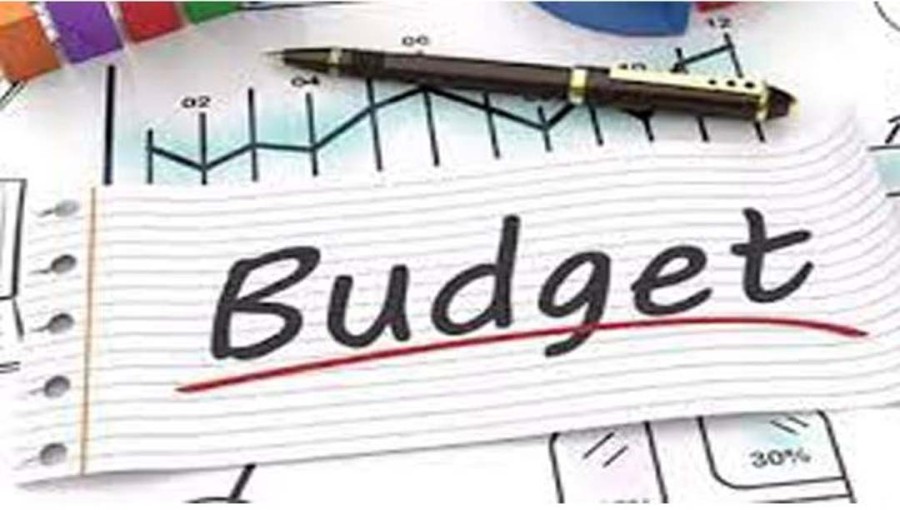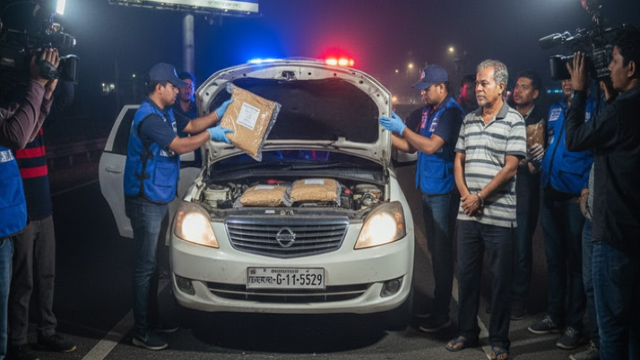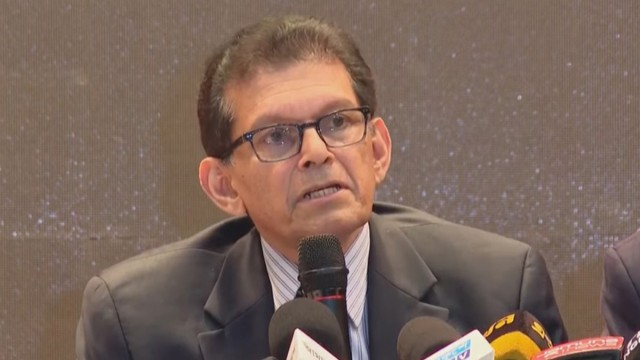Finance Minister Abul Hassan Mahmood Ali is set to introduce a proposed national budget of Taka 7,96,900 crore for the upcoming fiscal year (FY25) at the Jatiya Sangsad (JS) on Thursday, June 6.
The budget announcement comes amidst significant challenges, including controlling inflation, maintaining a stable foreign currency reserve, ensuring a stable exchange rate, and increasing revenue generation.
This will mark the 53rd national budget for Bangladesh and the 25th under the Awami League (AL) government over six terms.
Tajuddin Ahmad presented the first budget of the post-independence Bangabandhu government in 1972.
The FY25 budget will be the first for the current Finance Minister AH Mahmood Ali. Ali, a career diplomat who previously served as the Minister for Disaster Management and Relief and the Minister for Foreign Affairs, aims to build a 'Smart Bangladesh' despite various obstacles.
The budget's theme will be "Pledge towards building a happy, prosperous, developed, and smart Bangladesh," aiming to restore the country's economic health.
Amid global volatility and challenges, the finance minister targets a 6.75 percent GDP growth while containing inflation at 6.50 percent, despite the current general point-to-point inflation hovering just below double digits.
Finance ministry officials noted that the proposed budget size of Taka 7,96,900 crore is 4.60 percent, or about Taka 35,115 crore, higher than the current fiscal year's (FY24) budget.
With an already approved Annual Development Programme (ADP) outlay of Taka 2,65,000 crore, the proposed budget will see an estimated deficit of Taka 2,57,000 crore, including grants.
The government aims to reduce expenses, keeping the budget deficit to 4.6 percent of GDP, compared to the usual target of around 5 percent. For FY24, the budget deficit is Tk 2,61,785 crore, while for FY25, it is expected to be Tk 2,57,000 crore.
Officials indicated that the government is not pursuing high growth or new mega projects this time. Instead, the focus is on repaying principal amounts and interest on foreign loans, necessitating higher revenue generation by the National Board of Revenue (NBR).
To manage expenditure pressures, the government plans to collect Taka 5,41,000 crore in overall revenue, with the NBR tasked with generating Taka 4,80,000 crore, which is Taka 50,000 crore more than the previous fiscal year.
Finance Division officials involved in budget formulation stated that key priorities include controlling inflation, stabilizing the economy, keeping commodity prices within the reach of common people, and ensuring decent living standards.
The budget will include various austerity measures to control public expenditure, boost farm productivity, and maintain a stable supply chain. Additionally, continuous market monitoring to curb inflation, expanding social safety nets, and automatic fuel price adjustments in line with global markets will be implemented to positively impact inflation.
Key initiatives in the new budget encompass ensuring food security, improving the food supply system, expanding social safety nets, modernizing villages, providing digital health and education, completing fast-track infrastructure projects, and addressing climate change impacts and global challenges.
To meet budgetary expenses, the government plans to borrow around Taka 2.75 lakh crore, with over Taka 1.50 lakh crore sourced from the banking system. Additionally, the government aims to secure $1.17 billion from foreign sources.
The budget will allocate approximately Taka 1,20,585 crore for subsidies and stimulus, alongside Taka 1,08,000 crore for interest payments on local loans and Taka 20,000 crore for interest on foreign loans.
To expand the VAT net, the NBR will intensify efforts to establish Electronic Fiscal Devices (EFDs) in Dhaka and Chattogram. In collaboration with BRTA, DPDC, and city corporations, the NBR plans to identify new taxpayers.
Mandatory submission of e-challans for VAT payments of Taka 20 lakh and above will be introduced, lowering the current threshold from Taka 50 lakh. Additionally, 20.26 lakh individuals will be added to social safety nets to mitigate the impact of inflation.































Comment: